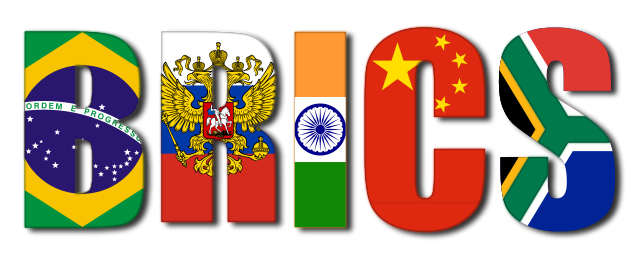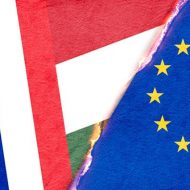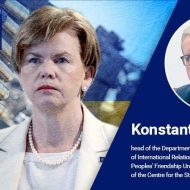By Vladimir Stroev – Rector of the State University of Management
In modern conditions, the association of the BRICS countries (Brazil, Russia, India, China and South Africa) is becoming an increasingly powerful alliance, represented by the largest developing states, which have already surpassed the key developed economies in terms of their economic potential. The BRICS countries, which occupy 30% of the world’s territory, in 2022 were home to more than 40% of the global population, they accounted for 32% of world GDP (in 2001 – only 8%), 18% of global foreign direct investment and a quarter of international trade.
According to forecasts, by 2030, if we talk about the current composition of the participants, the BRICS together will account for 50% of global GDP. In order to form a new center of global economic counteraction, including by strengthening the South-South direction, the association poses a serious challenge to the established leadership of the Western countries. This is especially important as these states face the unusual risks of the current crisis in the form of stagflation, inflation and economic slowdowns.
In addition, there has been a departure from the economic globalization paradigm that has developed in recent decades, and the world economy is increasingly fragmented. In these realities, it is more important than ever to form new centers of power in the world that would ensure a new global economic order. BRICS in this sense is an association capable of becoming a self-sufficient force in the near future, shaping the economic agenda in the world.
It is likely that in the future the main function of the BRICS will be not so much the development of trade and economic cooperation as its use to change the architecture of global economic regulation. This, in turn, will increase both the weight of this association and the interaction of countries in different areas. One of these areas, in particular, may be the strengthening of monetary and financial cooperation, associated with pressure on the position of the US dollar in international settlements and the world monetary system.
The de-dollarization momentum set since the beginning of the NWO and with the introduction of anti-Russian economic sanctions must continue to be strengthened, including through the use of currencies alternative to the dollar in settlements between countries (for example, the share of Russian exports denominated in dollars has already decreased in 2013-2022 from 80 to 50%), as well as the development and implementation of the BRICS integrated payment system project.
The possible expansion of the BRICS remains a controversial, ambiguous, but at the same time, positive aspect, the narrative of which began to advance only in the last year, which is probably due to a sharp increase in mutual trade within the BRICS as a result of anti-Russian sanctions, as well as an increase in the aggressive rhetoric of developed countries in relation to China and Russia, which need to expand their spheres of economic influence in such conditions.
In this context, the admission of new members who are considered leaders in their regions (for example, Egypt, Indonesia, Saudi Arabia) can significantly increase the global influence of the BRICS. Therefore, it is likely that the geographical expansion of the association will proceed more rapidly than was typical for other international structures. At least 17 countries have already announced their planned accession to the BRICS in 2023, which will certainly provide the necessary synergy of economic cooperation and the weight of the association, since these states have extensive economic potential and large reserves of natural resources.
At the same time, the economies and political systems of the BRICS countries still remain heterogeneous (with the unconditional dominance of China and the dependence of other players on it), so that for the time being we can talk about the formation of a full-fledged integration association between them. This requires the will of a strong player who is maximally interested in strengthening and uniting the states of the association and who is able to lead and lead this process.
In addition, the economies of the BRICS countries are developing out of sync, and there are some specific problems (such as unresolved territorial disputes between China and India). Moreover, BRICS still represents some abstract group of countries, and it is not clear what will be a solid foundation for economic interaction in the future. Under the conditions of a possible expansion of the association, the understanding of this basis is even more blurred. In addition, it is important to assess how strong this union is and how much there is a risk of alienation of member states from each other in the long term.
Thus, the BRICS countries (especially in view of the upcoming expansion) need to look for ways to strengthen their complementarity in the economic and technological spheres. The upcoming BRICS Summit in South Africa will no doubt aim to mitigate these risks, as well as to further promote the development of trade and investment by developing preferential trade and investment regimes and stimulating the development of new global supply chain networks.
In addition, interaction within the BRICS framework will be aimed at developing mechanisms to overcome macroeconomic shocks and new global crises, problems in the monetary and financial sphere, as well as the choice of directions for technological development. In the context of possible opposition in the future to new sanctions from the West, the BRICS countries need to develop alternative mechanisms for interaction, for example, a single payment system and a system for cross-border transfer of interbank payments. Finally, BRICS can become a platform for introducing a more equitable and efficient model of socio-economic development in the poorest countries than before.
This article was first published in Russian on 3 August 2023 in the newspaper Izvestiya. Translation by United World International.









Leave a Reply